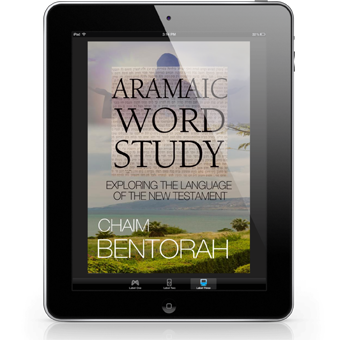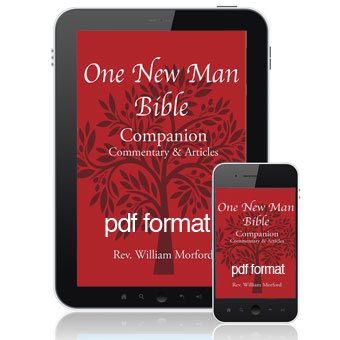Description
Jesus and the Apostles spoke Aramaic, the native language of Israel and surrounding territories at the time. Jesus and the Apostles, as religious Jews, also knew Hebrew because the Torah was written and read in Hebrew, but their everyday language was Aramaic.
Here’s the question: If Jesus and the Apostles all spoke, preached, and ministered in Aramaic, why don’t we study their words in the Aramaic?
Many mainstream Bible scholars believe that the New Testament was first written in Greek and not Aramaic. But other scholars believe that much of the New Testament was first written down in Aramaic or at least dictated in Aramaic and then translated into the Greek written word.
No original New Testament documents exist as far as we know. They were all destroyed, lost, or forever secreted away. There’s no way of proving that the New Testament we know today was first written in Aramaic or Greek.
But we do know one thing as a fact; Jesus and the Apostles spoke Aramaic as their everyday language. The Sermon On the Mount was spoken in Aramaic to the crowd on the shores of Galilee. Every parable Jesus shared with the crowds and with His Disciples was spoken in Aramaic. When Jesus sat with His disciples on the Mount of Olives and told them what would happen at the end of this age, He spoke to them in Aramaic.
Jesus spoke Aramaic, John, Peter, and the other disciples spoke Aramaic; even Paul spoke Aramaic.
If Christians believe that every word written in the Bible is sacred, even though the Bible we read today is a copy of a copy, and a a translation of a translation, shouldn’t we also at least consider that the actual words Jesus spoke, in the language He spoke them, are similarly inspired, and worth exploring?
Join ancient languages scholar Chaim Bentorah as he guides in exploring the language of the New Testament.
A note from Chaim Bentorah:
It is important that the reader understands some very real problems with attempting to translate the New Testament from the Aramaic. First, most biblical scholars do believe that the language Jesus and his disciples as well as the Apostle Paul spoke was an Old Galilean Aramaic or Jewish Palestinian Aramaic which is a dialect of the Western Aramaic also known as a Northern dialect. There are many modern Eastern Neo-Aramaic dialects but no known Western dialect exists today. It is believed to be a dead language although in recent years three villages in Syria still speak a dialect known as the Ma’lula dialect, which is believed to be a descendent of the Western dialect and possibly closely related to the Old Galilean. As this dialect is studied, grammars have been written and discarded. There is just no real certainty other than a few grammatical points as to whether we have a comprehensive knowledge of the language that Jesus spoke.
The point being that we have no real documents of the original Old Galilean dialect that Jesus spoke. The belief that the Christian New Testament was originally written in Aramaic is only a theory. It is believed that when it was written a scribe would have translated the words of Jesus and the disciples directly into Greek. However, there is the belief that these words were written as Jesus and the disciples dictated them in the Old Galilean Aramaic which worked its way into the Syriac language, a close cousin of the Northern Dialect that became what is known today as the Peshitta New Testament.
Thus, I reach a conclusion by using the Greek, Hebrew and Aramaic to develop a theory. To be sure I am not saying that my conclusions are to be taken as dogma and all other sources are wrong. I am only offering to my reader an opportunity to expand their thoughts and maybe reach a deeper understanding of a particular word used in our English Bible. To build in you the same desire that this dusty old biblical languages teacher has of reaching a deeper understanding of God’s Word, through the guidance of the Holy Spirit. I do admit to being speculative in many of my conclusions and ask the reader to keep this mind as they read this book. However, my speculations are based upon my biased personal experience with a God that I believe with all my heart loves me and that I love in return and hold dear as life itself.







Reviews
There are no reviews yet.